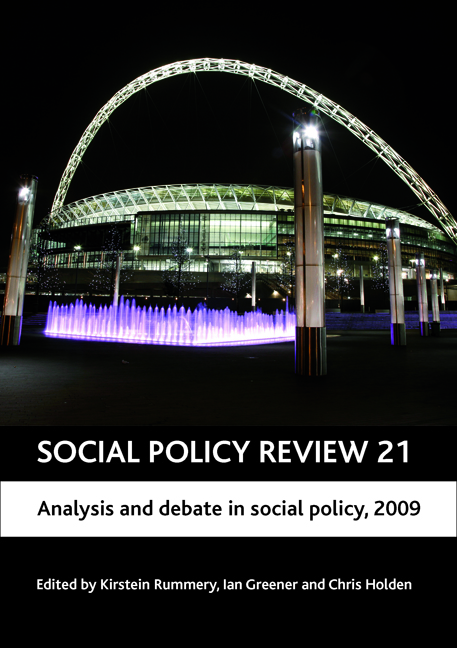three - Tackling ignorance, promoting social mobility: education policy 1948 and 2008
Published online by Cambridge University Press: 05 July 2022
Summary
Introduction
In this chapter, we reflect on education policy in 2008 in the light of the events and debates of 1948. We concentrate on events in England, although contrasts with the devolved policies of other parts of the UK also feature in our analysis.
1948 was a quiet year in the war on ignorance, with Butler's Education Act already four years old. Moreover, rather than embodying a clear set of post-war ‘ideals’, education policy reflected an uneasy post-war settlement hammered out after bitter pre-war divisions between church and non-church schooling and other unsettled arguments.
Some things were clear. A public opinion poll conducted by the Ministry of Education in 1945 found that the strongest public support was for the raising of the school-leaving age and for ‘everybody to have an equal chance’ (Gosden, 1976, p 341). The coming of free secondary and university education with scholarships and maintenance grants was seen as a means to that last ideal. Two other ideals were woven into the 1944 Act: that the state's responsibility should extend to preparing all of its citizens for employment and to provide them with the intellectual capacity to be fully participating citizens. In practice, economic pressures and employers’ objections meant that neither of these goals was implemented. Education also reflected the same implicit ‘deal’ with the professions that characterised the National Health Service (NHS) and other parts of the post-war settlement. Enlarged state involvement in funding and organisation would be matched by professional freedom. This involved both the freedom to practise with minimal state interference and day-to-day control by professionals over their own working lives.
Yet on the issue of school structures there were divisions. The non-conformists and the Left in the Labour Party had only reluctantly accepted that church schools should receive state funds, missing the opportunity to establish a single, local authority-governed state system. Many in the Labour Party also opposed the tripartite structure of grammar, secondary modern and technical schools that was being thrust on local education authorities by their own government. These disputes reflected a wider disagreement within the party about what secondary education was (Barker, 1972). For the old Fabians, education was the way to ensure that able working-class children would rise through the ranks of an elitist but unequal society, hence the role for grammar schools. For others, schools were part of the means by which society could be equalised.
- Type
- Chapter
- Information
- Social Policy Review 21Analysis and Debate in Social Policy, 2009, pp. 49 - 66Publisher: Bristol University PressPrint publication year: 2009

